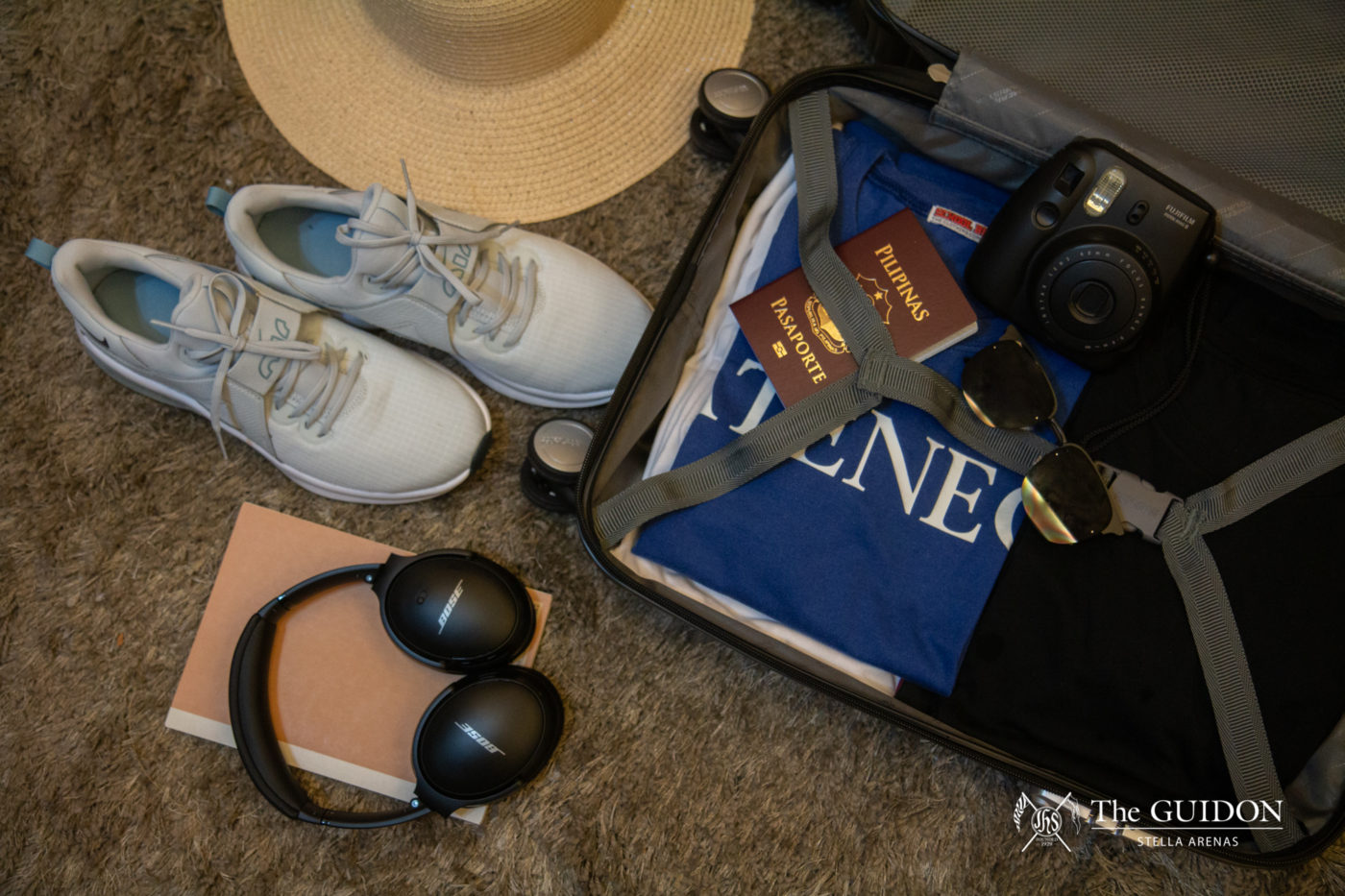AFTER LAST semester’s online shift, the Loyola Schools (LS) administration decided to resume all international mobility programs such as the Junior Term Abroad (JTA) program, starting the second semester of AY 2022-2023.
According to Office of International Relations (OIR) Director Karen Sunico in her April 6 memo, the second semester of AY 2022-2023 is the earliest possible time for the administration to deploy LS students given the nomination period and processing time required for student mobility.
Sophomores and eligible juniors had until May 2 to complete their submission of intent. After which, the OIR will release the provisional list of available host universities for the JTA Spring 2023 term on May 16.
Paving the roadmap
As the OIR tests the waters by resuming the application processing for the said JTA program, Sunico wrote that the program may still be suspended at any time when necessitated by government advisories. As of writing, the OIR is still waiting for the official government advisory that will allow international student mobility programs.
Notably, the JTA program is an “ongoing development” as some partner universities are affected by border regulations due to COVID-19 situations in different places of the world.
The OIR also cited the geopolitical tensions between Russia and Ukraine currently affecting parts of Europe and partner universities there. Currently, the Ateneo has linkages with various schools in Eastern Europe, such as the Lomonosov Moscow State University (Institute of Asian and African Studies) in Russia.
While the OIR will implement the JTA program in compliance with safety regulations, Sunico reiterated University President Roberto Yap, SJ’s March 5 memo which reminded students to be “cognizant of the volatility of the situation” and “prepared to address concerns while abroad.”
In the LS-wide Outbound Student Exchange Zoom Information Session conducted last April 18, OIR Outbound Coordinator Sebastian Bundoc disclosed details of the initial release of the list of host universities on May 16.
This list is expected to consist of less than 30 host universities and information on their spring term student exchange programs. “We’re also anticipating some reservations with our partner [universities] that are near major conflict [areas] around the world, such as the new outbreak in China and the war in Ukraine,” Bundoc shared.
However, Bundoc assured the students that the OIR will “do [their] best to provide [students] with the information that [they] need” in order to confirm their intent for the JTA program this coming June 27 to July 2.
Surfing new waves
With the resumption of international physical mobility programs, Ateneo Student Exchange Council (ASEC) President Sofia Evidente shared that ASEC has several projects planned for the next academic year. Foreign exchange students can look forward to several events that allow them to meet local Atenean members and adapt to Ateneo and Filipino culture.
As for outbound students, she said ASEC and the OIR can provide information about the requirements, admissions, and the foreign country itself.
Additionally, despite the “constantly changing” and “unclear” safety guidelines, Evidente mentioned that ASEC’s members are excited to return on-site for mobility programs given their struggle in the online setup.
Throughout the COVID-19 pandemic, ASEC adapted to the online setting by coordinating with the OIR to organize initiatives such as the Online Learning Exchange Program (OLEP).
The OLEP consisted of online alternatives for foreign exchange students such as the “buddy system” with Ateneans, study abroad help desks, and a website featuring testimonials and tips for Ateneans interested in the said undertakings.
To bolster information sharing on different cultural issues in an online setting, the ASEC also created podcasts and released publication materials tackling advocacies like Asian representation in the media.
However, Evidente said that ASEC had struggled to promote these activities through online platforms. Remarking on their struggle during the online set-up, she asked, “How could [ASEC] fully function as an organization without ‘student exchange’?”
She added that this struggle stems from ASEC members being unable to enjoy the full experience of guiding exchange students throughout their time in the University or to immerse themselves in other countries or cultures.
“Since physical inbound and outbound mobility programs are what ASEC has been accustomed to planning before the pandemic, I believe that we would have a smoother transition as compared to switching from on-site to online,” Evidente noted.







